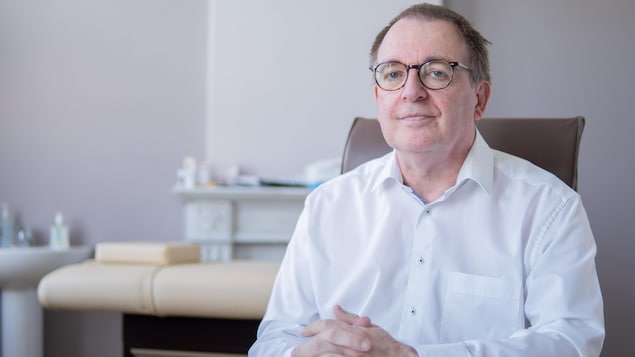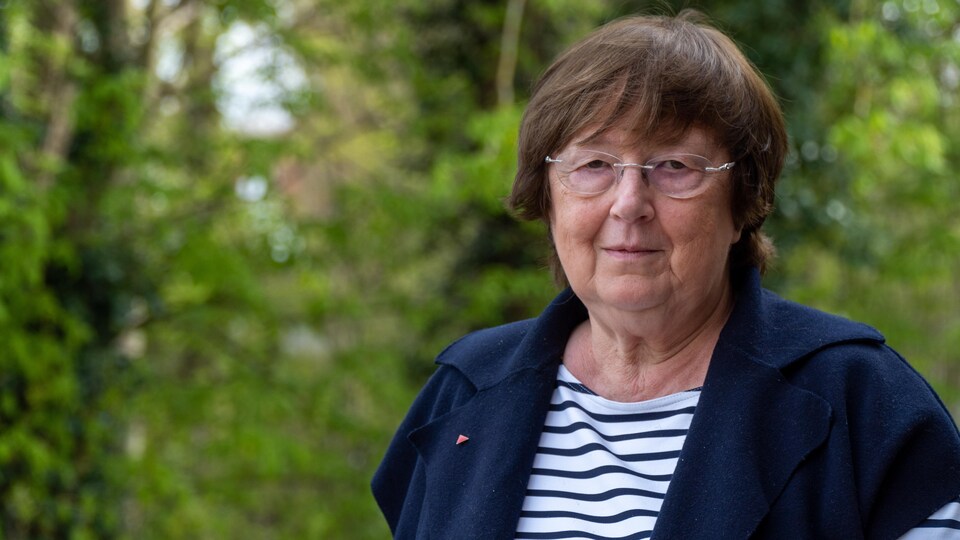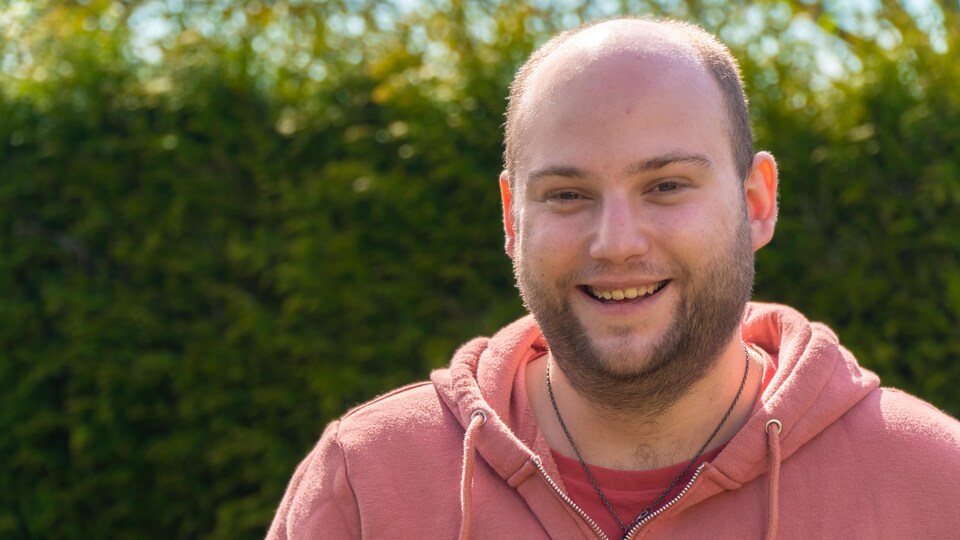The Government of Quebec wants to expand the criteria for receiving medical assistance in death. But lawmakers do not want to allow such access to people with mental illness. However, Belgium opened this door 20 years ago. There were no reports of medical abuse. Bagkos. Here is the Roman example.
The image is breathtaking. Romain lost weight, he smiled easily, he interacted with Mathieu, the cameraman, and me. He tells us: I have a relationship with a woman, I have friends, I have a little dog that forces me to go out every day. It’s really different now than when we met.
That’s over two years. We met him as part of a larger report on death medical assistance in Belgium, one of the most permitted countries in the world on this issue.
Exhausted, Romain reached the end of his long depressive course: numerous suicide attempts, hospitals, psychiatry, medicine, psychotherapy and even electroshock had no power to cure his illness. He asked for only one thing: the right to die with dignity.
” Yes, it’s true, when we met, I really wanted to die … “
In the 2020 report, looking me straight in the eye, he dropped this sentence: If euthanasia was denied me, I would commit suicide.
To achieve this, according to the rules of Belgian law, Romain had to convince at least two doctors, including a psychiatrist, of the incurability of his illness and of his determination to end his life. He received denials. Because of his young age.
Now, he tells us the rest. Certainly there is a long process in relation to the request for euthanasia. And then, finally, I found a doctor who helped me a lot.

Dr. said. Léon Constant that he was willing to review Romain’s request for euthanasia. I positioned myself by saying: ” If you trust me, if you think we can work together, I will be your incoming physician. And we’ll see together if euthanasia is the best answer. ” I didn’t say yes, I didn’t say no. I said: okay, but we’re going to work.
This doctor is known to have carried out many euthanasia cases in Belgium since the law took effect 20 years ago. He considers medical care perfectly acceptable when all the standards provided by law are met. And Romain met some of these criteria.
We’re talking about suffering here, not physical pain, the law is brilliant at this level. And if the suffering is judged by the patient to be unparalleled, unbearable, it is one of three criteria. Romain was not demented. He does not suffer from a psychiatric illness that deprives him of his judgment and his free will. So he is ” euthanasiable ”.
The last criterion remains: the incurable aspect of the disease. In this regard, Dr. wants. Constant to find out the question. He did this with Romain for several months. He referred his patient to psychiatrists. And then the doctor came to this conclusion: I told Romain: ” I think the relationship we have with our psychic reality and our brain is complex. It evolved over time and was marked by childhood trauma. I think in your case, that is. And that can be done. And at work, we come to a solution other than death.
Gradually, against all odds, thanks to Dr. Constant, the young depressed man regained the taste for life.
The key? I found in him a listening that I had no othersaid Roman.
Others followed. Reducing medication, weight loss, increasing confidence …
I see things now, Romain added. I have my apartment. And, how to say, I tell myself that if that’s how life is, I might be willing to move on.
I think there is no trigger, a definite fact, says Jacqueline Herremans, lawyer and activist, about the evolution of Romain. He knew her very well. It accompanied him in his search for many years. And he introduced Romain to Dr. Constant.
” When I saw Romain slowly leave here, stop talking about suicide in case we didn’t hear his request for euthanasia and continue his studies, I breathed a sigh of relief. “
Jacqueline Herremans has been a member of the National Commission for the Review of the Euthanasia Law since it was enacted in May 2002. She explained that the reasons for getting death assistance have varied over time.
At first, we do not have to think of cases of requests for euthanasia for psychiatric reasons. We thought: cancer, neurodegenerative disease, etc. And then, requests came quickly regarding patients suffering from chronic depression who were unlikely to be treated.
This could happen one day in Canada. The Belgian lawyer was also heard by the parliamentary committee responsible for the bill currently being studied in the National Assembly of Quebec.
Sina Jacqueline Herremans, Dr. Constant and Romain agree: Belgian law is well made. I can take myself as an example, Romain says. Finally, something else was offered to me, we tried something else, now it works.
In my experience, there was probably a request for euthanasia among the ten who succeeded, the doctor continued. Because situations of despair are common in society.
This is a well-documented reality. Often, the patient who is entitled to medical assistance at death does not immediately use it. This results in a kind of comfort, especially to patients with mental illnesses who find comfort in knowing that their illness is serious.
Roman confirms: I, maybe if I got it, I wouldn’t have to implement it directly. I could have known that … if really, at some point, done, no longer working, there is a possibility that, yes.
She continues to see her doctor at least once a week. He needs it. His condition remains fragile.
I think Romain has a solid foundation being laid for him to build an existence that can be fun, says Dr. Constant. However, the risk of suicide still exists. The anxiety is still there.
For now, Romain is optimistic. His eyes were glowing and a slight smile appeared when I asked him: If we meet again in five years, what will be your situation, ideally?
Roman replied: In a relationship with a child, maybe … A job I like, where I feel I am satisfied. In social contacts. Something positive, a small family, a job, yes. And travel.
Source: Radio-Canada

